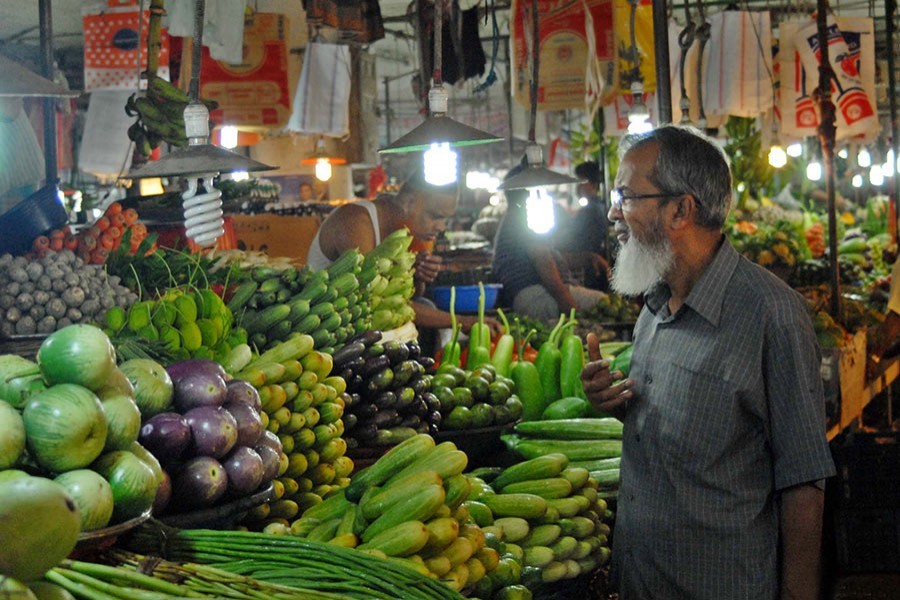
Published :
Updated :

The news that three women waiting long in a queue for TCB (Trading Corporation of Bangladesh) trucks to arrive with subsidised goods in front of Rajdhani High School on Manik Mia Avenue did not cause a shockwave. In a country that is busy with a plethora of reforms and 'devil hunt', the life of the poor and vulnerable hardly counts. These marginal people in society had great hope when this interim government was installed to clean the Augean stables and restore sanity in socio-economic order. They waited for it to deliver the goods, knowing full well that the job cannot be done overnight.
To do so, the government had to think innovatively and act with a sense of purpose. But inaction and its governance have remained synonymous. The interim government is following in the same beaten course the much maligned Hasina regime made its spoon-feeding programme as part of showy social welfare for the poor. That kleptocratic regime had to turn a face of so-called generosity in order to hide the looting of billions of taka by the cronies.
A despotic government has many faces to show and it may hardly feel the indignity associated with the clamour and jostling by the poor behind a TCB truck that has limited goods to provide for far fewer than the larger number of them who leave empty-handed. True, the Covid-19 pandemic dealt a severe blow to many people's income. Before it, even the low-income people did not bother for such government support. Well, the old and vulnerable, widows and the disabled were brought under social welfare programmes because their vulnerability in every country is recognised for extending such support.
Yet another argument against the sale of commodities from TCB trucks is that the poor are not concentrated in the urban centres alone, where there is such an arrangement. In vast areas of the country, there are more people like the urban poor. The TCB trucks cannot be a viable means to supporting the poor when the system is left inherently faulty. Where from does the malaise originate, the need is to apply medicine to that source of affliction.
Then the affliction has long been identified. Here is an economy that has been overwhelmingly dependent on import instead of developing a strong base of manufacture. Businesses thrive on imports because they can make irrational profit in a monopolistic market. For example, the processors of locally produced grains or imported unrefined cooking oil control the market by unfair means. Thus prices of rice rise at the most unlikeliest time, peak harvesting period that is. Millers and hoarders are behind this intrigue. Big businesses and stockists resort to ploys suiting their needs so that they can deprive farmers or growers and at the same time fleece to their sweet will the consumers. It happens and is now happening in case of perishable vegetables, including potato and onion that do not rot in weeks but need preservation in cold storages for supply until the next crop.
In case of items the country does not grow, it is free for the importers. A contemporary reported recently that the total cost of a kilogram of cardamom, including tariff and transportation, stands at Tk 1,550 but its wholesale price is Tk4,200. There is a limit to making profit. Understandably, the deposed regime was obliged to appease the devious business community out to make outrageous profit.
Instead of deploying mobile court to slap fine on retailers, there is a need for monitoring the letters of credit by expert teams who can check with the exporting company or the going rate of the item in the source country and thus calculate the total cost by the time goods enter importers' warehouses. If a wholesaler sells a commodity at the rate of Tk4,200 a kilo while its total import cost is Tk1,550, penalising the person is not enough, s/he must be put behind bars. Why follow the pattern of playing to the gallery like the despot whose ulterior motive and the present mission ought to be poles apart.
Similar first-hand vigilance at the rice and oil refining mills can stop the cat-and-mouse game the hoarders and millers can play. There is no point harassing the poor retailers by mobile court. Attention should be paid to sources. If the source of all evils in businesses can be taken care of, the rest responds accordingly. The process can be further eased if the BRTC creates a pool of trucks dedicated to carrying produce directly from crop fields to urban centres and areas where there is a demand. Even before such trucks are procured, a few of the existing BRTC fleet of trucks can profitably be engaged in this task.
nilratanhalder2000@yahoo.com


 For all latest news, follow The Financial Express Google News channel.
For all latest news, follow The Financial Express Google News channel.